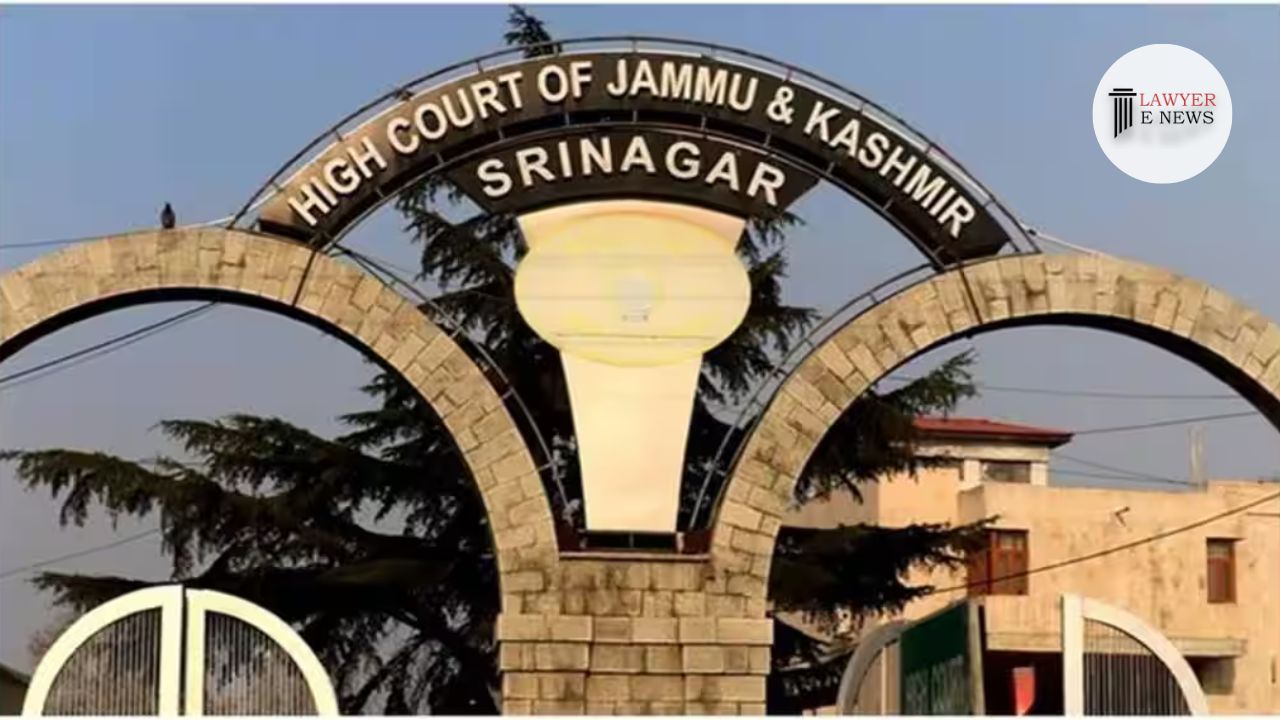-
by Admin
15 February 2026 5:35 AM



In a significant judgment, the High Court of Jammu & Kashmir and Ladakh at Jammu has quashed the FIR against the parents of Ajay Sharma while maintaining that the investigation against him must proceed. The case involves allegations of deceitful marriage and coerced physical relations under false pretenses, highlighting the nuanced approach of the court in differentiating the roles of various accused individuals.
The case originates from an FIR filed by Miss X, alleging that Ajay Sharma entered into a fraudulent marriage with her and subsequently coerced her into physical relations. Miss X contended that Sharma deceived her by converting to Islam and marrying her under false pretenses, only to later deny the marriage and sever ties. The FIR also implicated Sharma’s parents, accusing them of being complicit in the deceit. The petitioners sought to quash the FIR, claiming the accusations were baseless and motivated by personal vendetta.
The court meticulously examined the allegations against Ajay Sharma and his parents. Justice Rajnesh Oswal found no prima facie case against the parents (petitioners Nos. 1 & 2) but determined that the investigation against Ajay Sharma should continue to validate the claims made by Miss X.
Justice Oswal noted, “The parents cannot be held vicariously responsible for the acts of their son, especially when there are no allegations against them regarding the commission of any offense.” The court concluded that implicating Sharma’s parents appeared to be a tactic to pressure Ajay Sharma, noting the absence of evidence against them in the alleged crimes.
The court referenced significant precedents, including the State of Haryana v. Bhajan Lal, to clarify when criminal proceedings can be quashed. Justice Oswal emphasized that allegations must be closely scrutinized, especially if they seem driven by personal vendetta.
Justice Oswal reiterated: “Where the allegations made in the first information report or the complaint, even if they are taken at their face value and accepted in their entirety, do not prima facie constitute any offense or make out a case against the accused, the FIR can be quashed.”
The allegations against Ajay Sharma included deceitful marriage and coerced physical relations. Miss X claimed that Sharma converted to Islam and married her under false pretenses, only to later deny the marriage. Justice Oswal stressed that these allegations warranted a thorough investigation to determine their validity.
Justice Oswal remarked, “The factual dispute regarding the authenticity of the Nikahnama and the alleged deceitful conduct of petitioner No. 3 necessitates a thorough investigation. The prima facie allegations against petitioner No. 3 involve serious offenses that cannot be dismissed without proper inquiry.”
The court’s decision to quash the FIR against Ajay Sharma’s parents while allowing the investigation against him to continue underscores the judiciary’s balanced approach in handling cases involving personal vendettas and serious criminal allegations. By distinguishing between the accused based on available evidence, the judgment reinforces the legal principles of fairness and thorough investigation in criminal proceedings. This ruling is expected to influence future cases involving similar allegations, highlighting the importance of a meticulous examination of evidence and safeguarding individuals from unjust accusations while ensuring genuine complaints are thoroughly investigated.
Date of Decision: 30.05.2024
Kusum Sharma & Ors. Vs. The Station House Officer, Domana & Ors.
